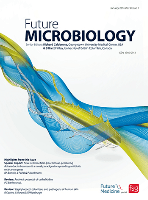
Future Microbiology
Scope & Guideline
Fostering Collaboration in Microbial Studies
Introduction
Aims and Scopes
- Microbial Pathogenesis and Host Interaction:
Research exploring the mechanisms by which microorganisms cause disease, including host-pathogen interactions, virulence factors, and immune responses. - Antimicrobial Resistance and Treatment Strategies:
Studies aimed at understanding the mechanisms of resistance in pathogens and developing novel therapeutic approaches to combat multidrug-resistant infections. - Microbiome Research:
Investigations into the role of microbiota in human health, including its impact on various diseases, metabolic processes, and the potential for microbiome-based therapies. - Innovative Diagnostic Techniques:
Development and evaluation of advanced diagnostic methods, including molecular techniques and biosensors for the rapid detection of pathogens. - Biotechnological Applications:
Application of microbial enzymes, metabolites, and other biotechnological innovations in medicine, industry, and environmental science. - Epidemiology and Public Health:
Research focusing on the epidemiological aspects of infectious diseases, including surveillance, outbreak investigations, and public health interventions.
Trending and Emerging
- Microbiome Therapeutics:
There is a growing interest in the therapeutic potential of the microbiome, particularly in relation to chronic diseases, metabolic conditions, and mental health. - Advanced Diagnostic Techniques:
The rise of rapid, molecular-based diagnostic techniques reflects an increasing trend towards quick and accurate pathogen identification, essential for effective treatment. - Antimicrobial Stewardship and Resistance Management:
Research focusing on strategies for antimicrobial stewardship is increasingly prominent, emphasizing the need to combat resistance through innovative policies and practices. - Host-Directed Therapies:
Emerging studies are exploring therapeutic strategies that target host pathways to enhance the efficacy of existing treatments against pathogens. - Vaccine Development and Novel Approaches:
There is an uptick in research aimed at developing new vaccines, particularly in response to emerging infectious diseases and the need for effective public health interventions. - Nanotechnology in Microbiology:
The application of nanotechnology for drug delivery and antimicrobial treatments is gaining traction, showcasing innovative approaches to combat resistant pathogens.
Declining or Waning
- Traditional Antifungal Agents:
There seems to be a decrease in studies focusing solely on conventional antifungal treatments, with a shift towards exploring combination therapies and novel agents. - Single-Pathogen Studies:
Research solely focusing on individual pathogens is becoming less frequent. Instead, there is a trend towards studying polymicrobial infections and their complex interactions. - Basic Microbial Ecology:
The exploration of fundamental microbial ecology without direct applications to health or disease is witnessing a decline, as research shifts towards clinically relevant findings. - Conventional Antibiotic Susceptibility Testing:
Standard antibiotic susceptibility tests are being overshadowed by the development of rapid diagnostic tools and advanced molecular techniques that offer more immediate clinical relevance.
Similar Journals

CURRENT MICROBIOLOGY
Advancing the Frontiers of Microbiological ResearchCURRENT MICROBIOLOGY, published by SPRINGER, is a renowned journal that serves as a critical platform for the dissemination of cutting-edge research in the field of microbiology. With an ISSN of 0343-8651 and an E-ISSN of 1432-0991, this journal contributes significantly to the scientific community by covering a diverse range of topics from applied microbiology and biotechnology to various aspects of medicine. Currently operating an impact factor that places it within the Q2 quartile in both applied microbiology and biotechnology and medicine (miscellaneous), along with a Q3 ranking in microbiology, CURRENT MICROBIOLOGY is recognized for its valuable contributions to these dynamic fields. This journal, which has documented the evolution of microbiological research since its inception in 1978, provides an essential venue for researchers, professionals, and students alike to explore innovative studies and advances. Although it does not offer open access, the journal remains a pivotal resource within its category, complementing the ongoing growth and exploration of microbiology from its headquarters at One New York Plaza, Suite 4600, New York, NY 10004, United States. Its Scopus rankings highlight its reputable standing, making it a key publication for anyone aiming to stay at the forefront of microbiological science.
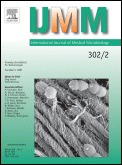
INTERNATIONAL JOURNAL OF MEDICAL MICROBIOLOGY
Fostering Global Collaboration in Microbial ResearchWelcome to the International Journal of Medical Microbiology, a leading publication in the field of microbiological research and infectious diseases, offered by Elsevier GmbH. Established in 2000, this esteemed journal provides a scholarly platform for the presentation of high-quality research, reviews, and innovations that bridge medical microbiology and clinical applications. With an impressive impact factor positioning it within the Q1 category across multiple disciplines, including Infectious Diseases, Microbiology, and Medicine, the journal is recognized for its rigorous peer-review process and significant contributions to advancing our understanding of microbial pathogenesis, diagnostics, and therapeutics. The International Journal of Medical Microbiology is committed to open access, promoting the dissemination of knowledge and accessibility for researchers, professionals, and students worldwide. Based in Munich, Germany, the journal continues to play a vital role in the global scientific community, fostering collaborations and inspiring future innovations in the fight against infectious diseases.
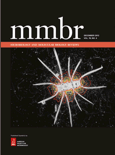
MICROBIOLOGY AND MOLECULAR BIOLOGY REVIEWS
Fostering Knowledge in the World of Microbiology and Molecular BiologyMICROBIOLOGY AND MOLECULAR BIOLOGY REVIEWS, published by the American Society for Microbiology, is a premier journal dedicated to advancing the fields of microbiology and molecular biology. With an impressive impact factor reflective of its Q1 ranking in categories such as Immunology, Infectious Diseases, and Molecular Biology, this journal consistently showcases high-quality, peer-reviewed articles that contribute to the current understanding of microbial life and molecular mechanisms. Operating since 1997, the journal aims to bridge the gap between microbiological methods and molecular biology applications, making it an essential resource for researchers, professionals, and students alike. Readers can access content through various platforms, ensuring that the latest findings are readily available to the scientific community. With its esteemed reputation, MICROBIOLOGY AND MOLECULAR BIOLOGY REVIEWS remains a leading voice in the exploration of the life sciences, catering to a broad audience deeply invested in unraveling the complexities of microbial and molecular systems.

Jundishapur Journal of Microbiology
Championing the evolution of microbiological research since 2009.Welcome to the Jundishapur Journal of Microbiology, a peer-reviewed publication dedicated to advancing the field of microbiology. Published by BRIEFLAND, this journal focuses on key areas such as infectious diseases and medical microbiology, offering a platform for researchers to share their findings from 2009 to 2024. Despite its current positioning in Quartile 4 across various categories in 2023, the journal provides a valuable resource for budding scientists and established professionals alike, contributing to the growing body of knowledge in these critical areas. While it is not an open-access journal, the Jundishapur Journal prioritizes the dissemination of research in the Netherlands, facilitating a deeper understanding of microbial science and its implications for public health. Join a community of innovators committed to exploring both emerging and established themes in microbiology.
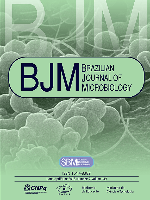
BRAZILIAN JOURNAL OF MICROBIOLOGY
Bridging Health and Environment Through MicrobiologyThe BRAZILIAN JOURNAL OF MICROBIOLOGY, published by SPRINGER, stands as a pivotal platform in the field of microbiology, offering an open access model since 2000. With the ISSN 1517-8382 and E-ISSN 1678-4405, this esteemed journal encourages the dissemination of groundbreaking research and innovative methodologies that contribute to the understanding of microbial life, its role in health and disease, and its environmental impact. Based in Switzerland and accessible globally, the journal’s categorization in the Q3 quartile for Microbiology reflects its commitment to quality and relevance in the scientific community. As of 2023, it ranks 121 out of 182 in the Scopus listings for Microbiology, further highlighting its growing influence in immunology and microbiological research. With converged years spanning from 1992 to 2024, the journal continues to support a diverse range of studies, making it an invaluable resource for researchers, professionals, and students alike.
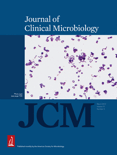
JOURNAL OF CLINICAL MICROBIOLOGY
Pioneering Research for Tomorrow's HealthcareJOURNAL OF CLINICAL MICROBIOLOGY, published by the American Society for Microbiology, stands as a premier resource for researchers and professionals in the field of medical microbiology. With an illustrious history dating back to 1975, this journal has consistently provided high-impact research, reflecting its status in the Q1 category among microbiology (medical) journals, and an impressive Scopus rank of 14 out of 140, placing it in the 90th percentile. The journal's commitment to unveiling foundational and innovative studies greatly contributes to understanding human health challenges posed by microbial pathogens. Researchers can expect rigorous peer-reviewed articles that cover a spectrum of topics, from diagnostic methods to clinical epidemiology, fostering a deeper understanding of microbiology's role in healthcare. While this journal does not offer open access options, its substantial impact factor underscores its relevance in shaping the conversation in clinical microbiology. The JOURNAL OF CLINICAL MICROBIOLOGY is indispensable for anyone dedicated to advancing their knowledge and practical skills in microbiology.

CRITICAL REVIEWS IN MICROBIOLOGY
Synthesizing Expertise for a Deeper UnderstandingCRITICAL REVIEWS IN MICROBIOLOGY, published by Taylor & Francis Ltd, is a leading peer-reviewed journal that has made significant contributions to the field of microbiology since its inception in 1971. With a prestigious Q1 ranking in Applied Microbiology and Biotechnology, as well as in Medicine and Microbiology, this journal is recognized for its high-quality reviews that synthesize current research and emerging trends in the discipline. Researchers and professionals rely on its comprehensive evaluations and critical insights, helping to advance knowledge and application in various microbiological contexts. Although the journal does not currently operate under an open access model, it remains an invaluable resource for academics seeking to stay at the forefront of microbiological advances. With a consistent publication record, CRITICAL REVIEWS IN MICROBIOLOGY continues to support the scholarly community by addressing key issues and innovations within the field.

ACTA MICROBIOLOGICA ET IMMUNOLOGICA HUNGARICA
Pioneering insights into microbial challenges.ACTA MICROBIOLOGICA ET IMMUNOLOGICA HUNGARICA is a distinguished academic journal published by AKADEMIAI KIADO ZRT, focusing on significant advancements in the fields of microbiology, immunology, and infectious diseases. Established in 1994, this journal serves as a vital platform for researchers, professionals, and students keen on exploring the complexities of microbial interactions and immune responses. With a current Impact Factor reflecting its rank within the Q3 categories for Immunology, Microbiology, and Infectious Diseases, it retains a critical position in disseminating innovative research. Although not open access, the journal provides extensive insights disseminated through various academic databases, ensuring a broad reach within the scholarly community. Its convergence over three decades indicates a robust commitment to excellence in scientific inquiry and knowledge sharing. As it moves towards the future, ACTA MICROBIOLOGICA ET IMMUNOLOGICA HUNGARICA continues to uphold its legacy of fostering collaborative research initiatives that contribute to the understanding and treatment of microbial diseases globally.
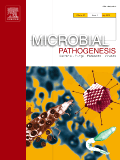
MICROBIAL PATHOGENESIS
Pioneering Research in Microbial PathogenesisMICROBIAL PATHOGENESIS, published by Academic Press Ltd - Elsevier Science Ltd, is a prominent journal in the fields of Infectious Diseases and Microbiology, with a notable impact factor and classified in the Q2 quartile for both categories as of 2023. Since its inception in 1986, this journal has provided a platform for the dissemination of cutting-edge research that enhances our understanding of microbial infections and their implications in health and disease. The journal is indexed in Scopus, ranking #80 among 344 in Infectious Diseases and #57 among 182 in Microbiology, underscoring its significant contribution to the scientific community. Although it operates under a traditional subscription model, the content is vital for researchers, professionals, and students focused on the dynamics of microbial pathogenesis and the development of innovative therapeutic strategies. The journal's comprehensive scope aims to foster advancements in this critical area of study, bridging the gap between laboratory research and clinical applications.
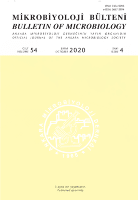
MIKROBIYOLOJI BULTENI
Illuminating the Pathways of Microbial ResearchMIKROBIYOLOJI BULTENI, with ISSN 0374-9096, is a prestigious academic journal published by the ANKARA MICROBIOLOGY SOC, located in Ankara, Turkey. Established in 1973, this journal has been a vital conduit for disseminating research in the fields of Immunology, Microbiology, and Infectious Diseases, garnering a reputation as a significant contributor to the scientific community. The journal is currently ranked in the Q3 category within Immunology and Microbiology (miscellaneous), and Infectious Diseases, indicating its impactful presence amidst contemporary research. With access options that may be restricted, MIKROBIYOLOJI BULTENI actively welcomes submissions that advance the understanding of critical microbiological principles and practices, thereby supporting both national and international research efforts. Researchers, professionals, and students are encouraged to explore the latest findings shared in this journal, as it continually shapes the landscape of microbiology and infectious disease studies through its comprehensive and rigorous peer-reviewed publications.